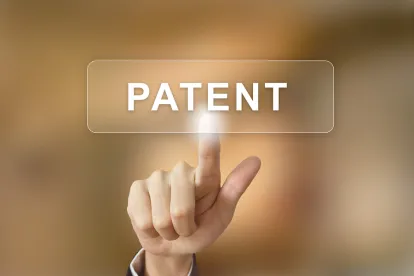Takeaway: The panel that renders the decision on institution reviews its decision for an abuse of discretion when a request for rehearing is filed.
In its Decision, the Board denied Petitioner’s Request for Rehearing of the Decision not to institute trial on both grounds: (1) claims 1, 2, and 8 as anticipated by Nieboer; and (2) claims 1-13 as unpatentable as obvious over Nieboer and Kolter. When rehearing a decision on institution, an abuse of discretion standard is applied, and an abuse of discretion is “indicated if a decision is based on an erroneous interpretation of law, if a factual finding is not supported by substantial evidence, or if the decision represents an unreasonable judgment in weighing relevant factors.”
Regarding the anticipation ground, the Board had determined that the term “microtablets” does not encompass granulates, and that this was determinative. Petitioner argued that a “binder granulate” or “granulate” can be both a precursor or a final preparation (encapsulated) form. However, the Board reiterated that the issue addressed what whether the broadest reasonable interpretation of the term “microtablets” encompasses granulates, and Petitioner did not persuade it otherwise. Accordingly, the Board was not persuaded that it had overlooked or misapprehended any evidence or argument in construing the claim term “microtablets,” or in determining whether Petitioner had established a reasonable likelihood that the challenged claims are anticipated by Nieboer.
Regarding the obviousness ground, the Board had determined that Petitioner’s declarant, “does not explain adequately why a person of ordinary skill in the art would have expected the addition of wetting agents, and the resulting increase in the rate of dissolution, to control the rate of release of the DMFAE of Nieboer as it did for the β-phenylpropiophenone derivatives of Kolter.” Petitioner argued that the expert in paragraph 23 of the declaration “explained why controlling the rate of release of powder-based oral pharmaceuticals was an obvious thing for a [person of ordinary skill in the art] to do, and one obvious way that could be done with powder-based oral preparation, i.e., wetting agents.” First, the Board notes that Petitioner did not cite paragraph 23 of the expert’s declaration to support obviousness in its Petition. Second, the Board had noted, in its Decision, that dimethyl fumarate is highly soluble in water, whereas propafenone HCl is only slightly soluble in water, and that the expert failed to address the different properties of the different active ingredients in its declaration. Specifically, the Board found that the expert failed to explain how adding wetting agents, which would increase the release rate of the drug, would improve Nieboer’s gastrointestinal complaints, which are already caused by rapid release of the drug in the stomach. Accordingly, the Board was not persuaded that Petitioner had established that its Decision misapprehended or overlooked any matters that would require modifying its Decision on Institution.
Coalition for Affordable Drugs V LLC v. Biogen International GmbH, IPR2015-01086
Paper 20: Decision Denying Petitioner’s Request for Rehearing of Decision Denying Institution of Inter Partes Review
Dated: January 19, 2016
Patent: 8,759,393 B2
Before: Lora M. Green, Jacqueline Wright Bonilla, and Tina E. Hulse
Written by: Hulse
Related proceedings: Good Technology Corp. v. MobileIron, Inc., Case No. 5:12-cv-05826-PSG (N.D. Cal.)



 />i
/>i

